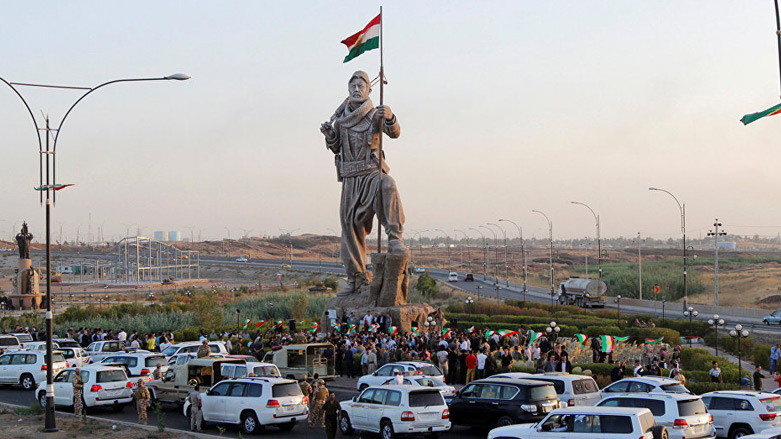Kurdish activist recounts arrest by counter-terrorism forces in Kirkuk

ERBIL (Kurdistan 24) – An Iraqi court recently acquitted a civic group leader who was arrested and tried following calls for widespread strikes on Oct. 16, the anniversary of the Kirkuk takeover by Iraqi forces that pushed their Kurdish counterparts from the province.
On Oct. 09, Adham Jum'a participated in a press conference in which the Social Coalition of Kirkuk People, an entity he heads, called for a strike to mark the passing of a year since the events and protest the "imposed military rule" by Iraqi forces and Shia militias.
"Early on Oct. 16, a large number of security agents wearing civilian attire surrounded my home," Jum'a began, while speaking with Kurdistan 24 after his release.
When he arrived at the door, Jum'a and his brother estimated that there were 70 to 100 members of the security forces outside his house. He claimed the team was headed by a high-ranking officer in local counter-terrorism forces.
"You must come with us," they ordered, as Jum'a recalled. "What you are doing is illegal," the civic group leader said he had responded. However, the authorities took him to the headquarters of the Counter-Terrorism Units in Kirkuk.
At first, Jum'a continued, he was seated in a room and spoke with members of the authorities as if they were negotiating. He explained that talks went for nearly two hours, with the intention of getting him to call off the group's urging for strikes, to which he said he "remained true" and did not concede.
"After that, I stayed there for the day [Oct. 16]," Jum'a went on. "In the night, I was transported to the Intelligence Office of Kirkuk," an entity that is part of the city's police directorate.
Moments after arrival, he would find out that he was handed over to the aforementioned office based on Article 4 of Iraq's anti-terrorism law.
"A person who incites, plans, finances, or assists terrorists to commit the crimes stated in this law shall face the same penalty as the main perpetrator," reads one clause in the article.
Convicted individuals, according to this article, could be sentenced to death.
Jum'a was then taken to a cell, sharing the space with two other persons whom he believed were either charged with or convicted of committing acts of terror. By then, Jum'a's story had spread far and wide on media outlets in the Kurdistan Region, which he believes contributed to the softening of the stance of his captors.
He said that, afterward, his charge was downgraded from Article 4 to slander, for which he was tried in court on Wednesday.
After reviewing his case, the court acquitted Jum'a.
He is now at his home and says that the move was only meant to break his resolve and steer him from his civic activities.
"On the contrary. They have emboldened my resolve and the range of our activities will be further expanded."
Editing by John J. Catherine
